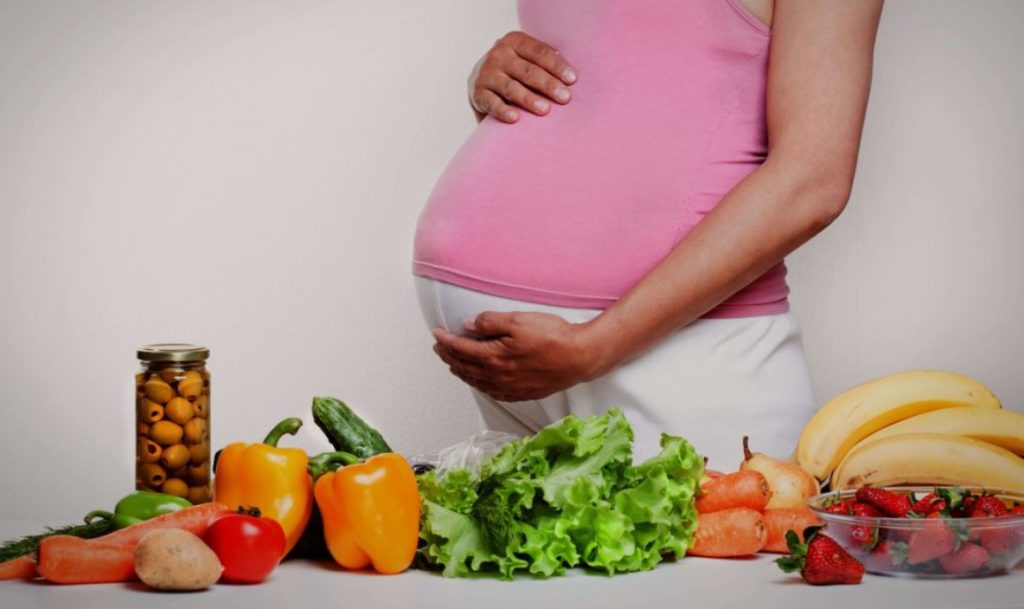Expecting a child is a transformative experience that forces a woman to re-evaluate her priorities and values. This leads to increased awareness about her health, lifestyle and her family’s future. The role of motherhood becomes a key source of motivation, encouraging her to make positive changes in her life. Among the most important changes was adjusting her diet. Nutrition becomes the main source of essential nutrients for the developing child. Throughout pregnancy, the baby’s skeleton, muscle tissue, internal organs and nervous system are formed, making each bite potentially beneficial or harmful. MSM Pro Derma Poly Clinic LLC emphasizes the importance of a balanced diet for expectant mothers, providing comprehensive nutritional support and recommendations throughout this important period. Proper nutrition during pregnancy is of utmost importance for several reasons:
Harmonious Growth and Development of the Fetus
A balanced diet ensures that the fetus receives adequate amounts of vitamins, minerals, and other essential substances necessary for its harmonious growth and development. Nutrients such as folic acid, iron, calcium, and omega-3 fatty acids play crucial roles in fetal development, contributing to the formation of a healthy nervous system, strong bones, and robust overall growth. The inclusion of whole grains, lean proteins, dairy products, and a variety of fruits and vegetables helps provide the comprehensive nutrition needed for the developing fetus.

Key Nutrients for Fetal Development
1. Folic Acid: Vital for the prevention of neural tube defects, folic acid is crucial during the early stages of pregnancy. Sources include leafy greens, fortified cereals, and legumes.
2. Iron: Essential for preventing anemia and supporting the increased blood volume in pregnancy, iron can be found in lean meats, spinach, and iron-fortified foods.
3. Calcium: Important for developing strong bones and teeth, calcium is abundant in dairy products, fortified plant-based milks, and leafy greens.
4. Omega-3 Fatty Acids: These support brain and eye development and can be found in fatty fish, flaxseeds, and walnuts.
5. Protein: Necessary for the growth of fetal tissues, including the brain, protein should be sourced from lean meats, eggs, beans, and nuts.
General Well-being of the Expectant Mother
A well-thought-out diet can minimize the manifestations of common pregnancy-related discomforts such as morning sickness, fatigue, and constipation. Proper nutrition ensures that the mother’s body is well-nourished, which can improve her overall well-being and energy levels. This, in turn, allows her to better manage the physical and emotional demands of pregnancy. Eating small, frequent meals and staying hydrated can help manage nausea, while fiber-rich foods can prevent constipation.
Managing Common Pregnancy Discomforts
1. Morning Sickness: Small, frequent meals, ginger, and vitamin B6 can help alleviate nausea.
2. Fatigue: Iron-rich foods and proper hydration can combat pregnancy-related tiredness.
3. Constipation: Fiber-rich foods, such as whole grains, fruits, and vegetables, along with plenty of water, can help maintain regular bowel movements.
Prevention of Complications
An unbalanced diet can lead to serious complications, including intrauterine pathologies and even fetal death. Proper nutrition helps in preventing gestational diabetes, preeclampsia, and other pregnancy-related complications. A diet rich in essential nutrients supports the immune system, reduces the risk of infections, and promotes healthy blood pressure levels. For example, limiting high-sodium foods and incorporating potassium-rich foods like bananas and avocados can help manage blood pressure.

Preventing Pregnancy Complications
1. Gestational Diabetes: Monitoring carbohydrate intake and focusing on complex carbs can help manage blood sugar levels.
2. Preeclampsia: Adequate protein and low sodium intake can aid in preventing this condition.
3. Infections: A diet rich in immune-boosting vitamins and minerals, such as vitamin C and zinc, can help maintain maternal health.
Fast Recovery After Childbirth
Women who develop healthy eating habits during pregnancy are more likely to continue these habits postpartum. This can facilitate faster recovery after childbirth, support lactation, and help the mother regain her pre-pregnancy strength and energy levels. A nutritious diet also supports mental health, reducing the risk of postpartum depression. Foods rich in omega-3 fatty acids, such as salmon, and complex carbohydrates, like oats, can improve mood and energy levels.
Postpartum Recovery
1. Lactation: Hydration and a balanced intake of calories, including lactogenic foods like oats and fenugreek, support milk production.
2. Energy Levels: Iron and protein-rich foods aid in replenishing energy stores post-delivery.
3. Mental Health: Omega-3 fatty acids and whole grains support brain health and emotional well-being.
Risks of Malnutrition During Pregnancy
Malnutrition during pregnancy can lead to severe consequences for both the mother and the child, including:
– Complications of pregnancy, such as anemia and preeclampsia.
– Congenital malformations in the baby, which can have long-term health implications.
– Increased risk of chronic illnesses in the child later in life, such as diabetes and cardiovascular diseases.
Benefits of a Properly Selected Diet
A well-balanced diet during pregnancy offers numerous benefits, helping the mother:
– Feel healthy and energetic, which is crucial for managing the physical demands of pregnancy.
– Actively prepare for lactation, ensuring a good milk supply for breastfeeding.
Basic Principles of Nutrition for Expectant Mothers
1. Nutritional Balance: Aim for a diet where 30% of energy comes from fats, 50-60% from carbohydrates, and 10-20% from proteins. This balance provides a steady supply of energy and essential nutrients.
2. Variety: Consume a wide range of foods to ensure a comprehensive intake of nutrients, vitamins, and minerals. Include fruits, vegetables, whole grains, lean proteins, and healthy fats in your diet.
3. Weight Management: Monitor weight gain to avoid both undernutrition and excessive weight gain. A gradual increase in caloric intake is recommended, tailored to the individual’s body mass index (BMI).
4. Additional Vitamins and Minerals: Pregnant women require extra amounts of certain nutrients, including:
– Folic Acid: Crucial for preventing neural tube defects. Found in leafy greens, legumes, and fortified cereals.
– Vitamin D: Supports bone health. Sources include sunlight exposure, fatty fish, and fortified dairy products.
– Iodine: Essential for thyroid function. Found in iodized salt, dairy products, and seafood.
– Iron: Prevents anemia. Rich sources include lean meats, beans, and fortified cereals.
– Calcium: Important for fetal bone development. Found in dairy products, leafy greens, and fortified plant-based milks.
5. Food Safety: Adhere to hygiene rules when preparing food. Ensure thorough cooking of eggs, meat, and fish to avoid foodborne illnesses that can be harmful to both mother and child.
Individualized Nutrition Plans
It is crucial for pregnant women to consult with healthcare professionals to create an individualized nutrition plan. Personalized advice can address specific dietary needs, manage health conditions, and provide support throughout the pregnancy journey. Healthcare providers can also offer guidance on portion sizes, meal timing, and managing specific dietary restrictions or preferences.
Practical Tips for Expectant Mothers
1. Meal Planning: Create a weekly meal plan that includes a variety of foods from all food groups to ensure balanced nutrition.
2. Healthy Snacking: Keep healthy snacks like nuts, fruits, and yogurt on hand to curb hunger between meals.
3. Stay Hydrated: Drink plenty of water throughout the day to stay hydrated and support overall health.
4. Listen to Your Body: Pay attention to hunger and fullness cues, and eat when you’re hungry while avoiding overeating.
5. Educate Yourself: Stay informed about the nutritional needs during pregnancy and seek advice from trusted sources and healthcare providers.
Support in Dubai: MSM Pro Derma Poly Clinic LLC
In Dubai, MSM Pro Derma Poly Clinic LLC offers comprehensive support for expectant mothers, including nutritional advice and ongoing assistance throughout pregnancy. Their team of experts ensures that both the mother and the baby receive optimal care, promoting a healthy and fulfilling pregnancy experience.
Conclusion
Proper nutrition during pregnancy is essential not only for the health and happiness of the expectant mother but also for the optimal development of the child. By following a balanced diet, managing weight gain, and ensuring the intake of necessary vitamins and minerals, pregnant women can significantly reduce the risks associated with malnutrition and enhance their overall well-being. Consulting healthcare professionals for personalized nutrition plans and support can further ensure a healthy pregnancy and a positive start to motherhood.

I am an award-winning freelance writer specializing in financial topics. With more than a decade of work experience, I have published in the Wall Street Journal, the New York Times and numerous industry journals, including the Harvard Business Review.
